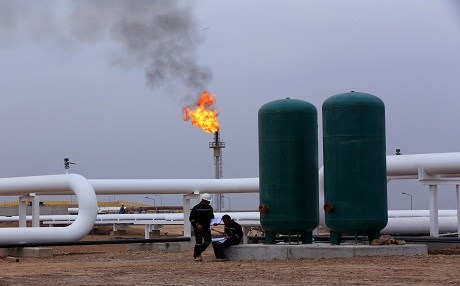
Rosneft in Kurdistan: A Neglected but Critical Aspect of Russian Regional Strategy
Publication: Eurasia Daily Monitor Volume: 15 Issue: 95
By:

Rosneft and Gazprom function primarily as arms of the Russian state (Jamestown.org, March 8). Although they are in business to make money for themselves, these state-owned firms are also expected to serve the Russian government and Vladimir Putin’s interest, as well as that of all the executives whose corrupt earnings depend on continuing access to the energy pump (see EDM, March 6, 2017). Over the past year or so, through a series of strategic business deals, Rosneft, in particular, has become an aggressive exponent of Russian state interests. The oil giant’s prominent position has been marked by large-scale investments in key foreign policy arenas for Russia, including the Arctic, China, Vietnam, Venezuela, Africa and the Middle East.
Notably, Rosneft has been making deals with the Iraqi Kurds (the Kurdistan Regional Government—KRG) since 2017. Last fall, the firm began negotiations with the KRG to open a pipeline it hopes will allow it to participate in the export of Iraqi natural gas to Turkey and Europe. Such a business arrangement would finally offer Rosneft leverage in the vital aspect of Russian gas exports (RIA Novosti, September 18, 2017). More recently, the KRG reported new oil and gas deals with Rosneft that Russian sources describe as “highly important.” Apparently, those deals will allow Rosneft to compete with European and other firms over Kurdish energy resources. The KRG backed this deal because, reportedly, it felt betrayed by the West over the latter’s refusal to support the September 2017 Iraqi Kurdish referendum on independence. And though the KRG sources cited in the news reports openly commended Moscow’s position, the Russian government has, in fact, been trying to carefully equivocate its approach toward Erbil and Baghdad because it does not want to undermine its relations with Iraq. Rather, Moscow seeks to use its relations with both Baghdad and the Iraqi Kurds to play them both off against one another, thus forcing each of them to seek Moscow’s support. At that point, Russia is in a better negotiating position to extract concessions from both, on energy or other deals like weapons, to advance the Kremlin’s interests in the region (Kavkazsky Uzel, May 25, 2018).
The latest Rosneft gains reflect the weakness of the KRG caused by the failure of last year’s independence referendum. As a result of that unsanctioned vote, the central Iraqi government pushed to take over full control of the oil fields in Kirkuk, half of which had been managed by the KRG. Amid this Erbil-Baghdad spat, Rosneft has emerged in a highly advantageous position. Since 2017, the Russian energy giant has lent the KRG $3.5 billion and signed contracts to develop five oil blocks, while also taking control of the Kirkuk–Ceyhan oil pipeline (Rudaw, March 4, 2018; Al Jazeera, December 1, 2017). Earlier this year, the Russian company even stepped in to mediate oil export talks between Erbil and Baghdad (Kurdistan 24, March 7).
The political and economic advantages of energy deals with Iraqi Kurdistan are critical and attractive for Moscow thanks to the leverage it creates over both Baghdad and the KRG. Moreover, thanks to its growing economic relationship with the Kurds, Rosneft (and thus Russia) can develop a second energy export corridor to Turkey and Europe, thus strengthening its position in both of these important markets.
But beyond Iraq and Turkey, Rosneft’s actions echo similarly aggressive business strategies elsewhere in the world—including Vietnam (Reuters, December 17, 2017), Venezuela (see EDM, October 4, 2017) and Africa (Rosneft.com, May 25, 2018)—highlighting the global dimension of Russian foreign policy as instrumentalized through Rosneft and Gazprom’s global contracts and deals. In the Middle East, these deals with Iraqi Kurdistan are a prelude to other joint business ventures Russia seeks with countries like Algeria and Libya, as well as its ongoing agreements with Saudi Arabia to regulate energy prices (RT, February 18, 2014; Deutsche Welle, June 12, 2016; Ameinfo.com, February 21, 2017). At the same time, Rosneft certainly expects to recoup its investments in and attract foreign financing for these Kurdish projects. Those foreigners who explore in the KRG will then have to pay tariffs for use of the Kirkuk–Ceyhan pipeline, according to the energy company’s executives (Interfax, May 25, 2018).
Clearly, the Kremlin has carefully considered the economic and political benefits that will accrue to Rosneft and to Moscow as a result of these far-reaching investments. Hence, it is possible to argue that these energy deals, which originate as far back as 2014, are part of a larger Russian Middle East strategy that encompasses the intervention in Syria, its energy and arms deals across the region, and relations with key actors like Turkey, Israel and Iran (Jamestown.org, October 5, 2017). The West continues to overlook this important aspect of Russian foreign policy at its peril.



